As the world grapples with antimicrobial-resistant bacteria, another insidious threat looms large: drug-resistant fungi.
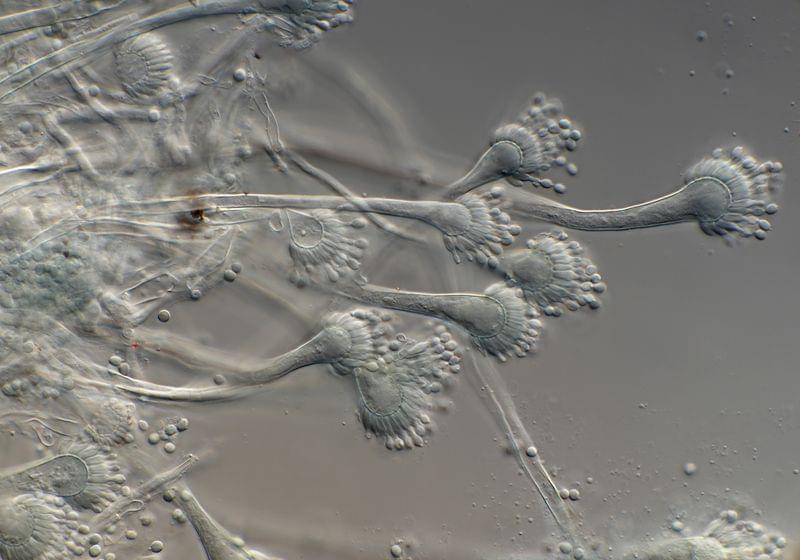

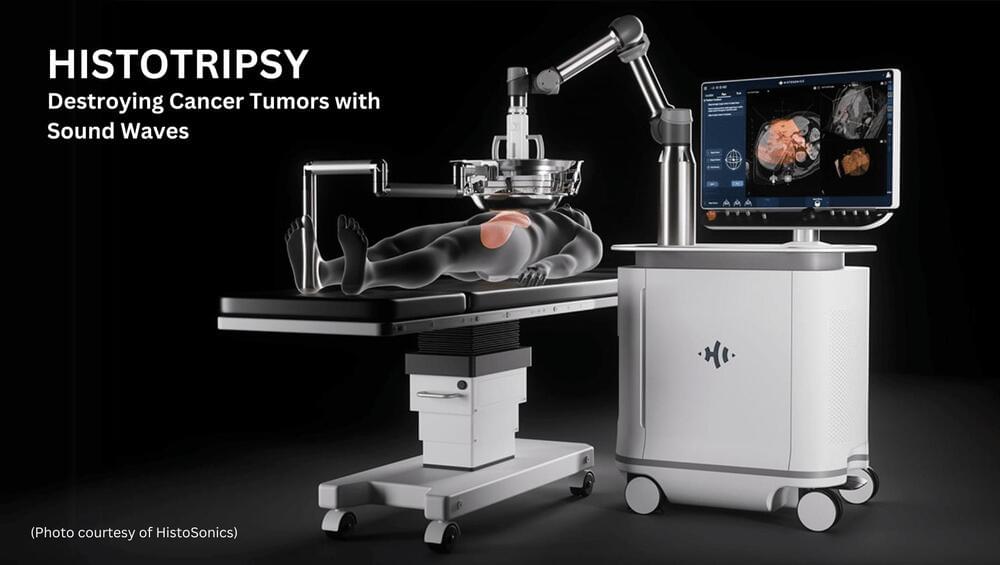
“The future of medicine is the medicine of frequencies.” – Albert Einstein.
Imagine a future where cancerous tumors inside the body could be destroyed using only sound waves. Well… the future is now. And it’s called histotripsy.
Histotripsy is a non-invasive process that uses sound waves to completely eliminate cancer tumors. Like radiation therapy, doctors point an ultrasound device at your tumor and “zap it.” But unlike radiotherapy, there is no cancer-causing radiation or heat involved, tumors can be destroyed in one treatment, there is minimal damage to surrounding tissue, a low rate of complications, faster recovery time, and it has been shown to activate immune cells to identify and target any remaining cancer cells in the body.

IVF technology matures eggs in a culture of iPSC (induced stem cell)-derived ovarian cells.
A baby was born in their trial, marking “first ever human birth using using iPSC technology” company claims.
Gameto useds iPSCs, or induced pluripotent stem cells. Same as embryonic stem cell, except made by inducing (forcing) a skin cell or white blood from a donor cell to become a stem cell using a protein cocktail. Dont need embryo to start.
This is also the first demonstration of an end-to-end process by which a therapy developed from induced pluripotent stem cells (iPSC) has the potential to improve IVF outcomes and advance women’s health. Co-culturing immature eggs with Gameto’s proprietary OSCs has shown promising results to date, with the potential for higher rates of egg maturation and embryo formation.
“This breakthrough represents a historic milestone in reproductive medicine,” said Dr. Luis Guzmán, Lead at Pranor Labs & Science, who oversaw the Fertilo-enabled IVF cycle that enabled the first live birth. “The ability to mature eggs outside the body with minimal hormonal intervention significantly reduces risks such as ovarian hyperstimulation syndrome and alleviates the side effects caused by high hormone doses. Fertilo is a major advancement for women who cannot tolerate or do not want to undergo the burden of the traditional IVF protocol, bringing hope and new possibilities to a broader patient population.”
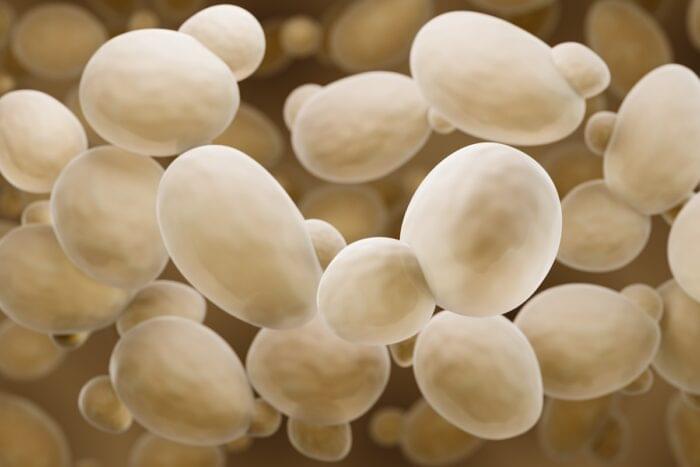
Oral immunotherapy shrinks gastrointestinal tumors in mouse study.
Immunotherapy is a promising treatment that recruits the immune system to help fight cancer, but it has had limited success in gastrointestinal cancers. Now, researchers at Washington University School of Medicine in St. Louis have engineered a probiotic that delivers immunotherapy directly to the gut to shrink tumors in mice, offering a potentially promising oral drug for hard-to-reach cancers.
The probiotic cancer treatment, described Nov. 20 in the journal Cell Chemical Biology, establishes a customizable drug delivery system that can be modified to potentially treat other gut diseases.
Infectious diseases can have very different effects on different people; some individuals may have virtually no symptoms from COVID-19, for example, while others are killed by the viral disease. Scientists have now learned more about one genetic mechanism that can lead to variations in immune responses in different people. The findings, which have been reported in Cell, describe a kind of tuner that can dial the immune response up or down, and has been encoded in human DNA for millions of years.
The human genome contains bits of ancient viruses known as retrotransposons, which were once able to move around the genome, like so-called jumping genes, but have since been brought under control. They are thought to compose a major part of the genome. Researchers have identified instances where retrotransposons can become active again, however, such as in some types of cancer. Now even more consequences of these trasnposons are being identified.

Dr. Ariel Zeleznikow-Johnston hopes to pick up the movement where Jones left off, albeit with the significant twist that his version does not require freezing. A research fellow at Melbourne’s Monash University, Zeleznikow-Johnston wrote the new book, “The Future Loves You: How and Why We Should Abolish Death,” which makes the case that cryopreservation is possible and should be more widely available. Rejecting the popular notion that death endows life with meaning as “palliative philosophy,” Zeleznikow-Johnston’s book instead argues a human’s connectome — a high-resolution map of all their brain connections — could be theoretically recorded perfectly before they die.
Once that happens, that same internal brain activity could be recreated through high-powered computers, while a new brain is grown in a vat via stem cells or some combination of the two. As such, Zeleznikow-Johnston is proposing a spiritual descendant to the cryonics movement (which he dismisses as “unscientific” and “unsubstantiated”), one where the focus is not on preserving tissues but on the “data,” so to speak, of our distinct connectomes.
“We have very strong evidence that the static structure of the neurons is enough to hold onto someone’s memories and personality.”

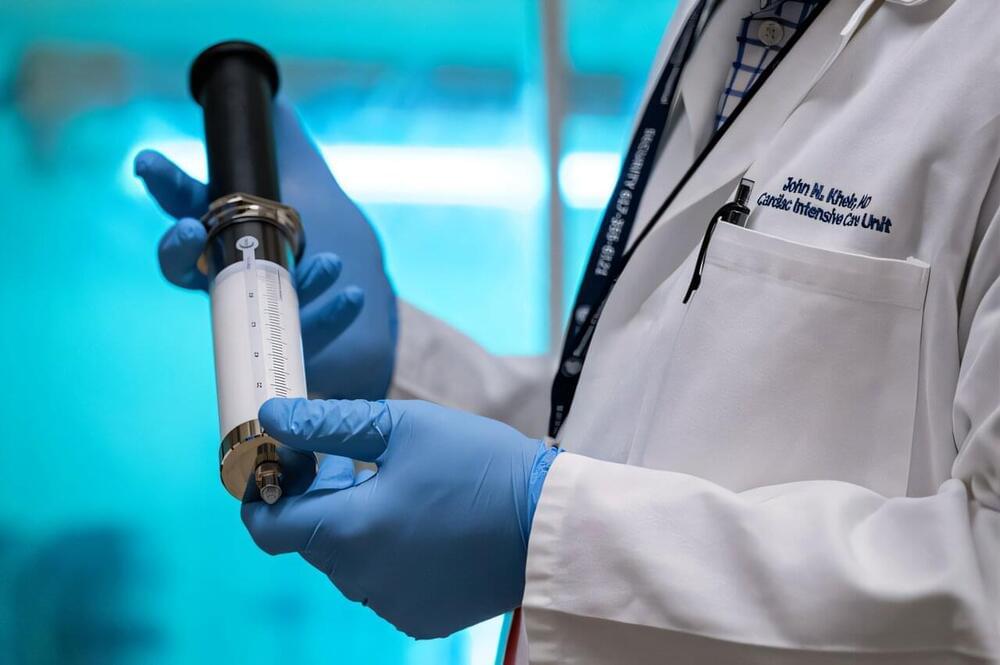
For years, researchers and clinicians have been trying to find a way to rapidly deliver oxygen to patients when traditional means of oxygenation are difficult or ineffective during critical moments of cardiac or respiratory arrest.
Sometimes, hypoxemia caused by airway obstruction or lung disease can be so severe that methods to boost low-oxygen levels (including the placement of a breathing tube) are ineffective. A patient can have cardiac arrest, potentially leading to severe organ damage. Research has shown that as many as 40% of in-hospital cardiac arrests are triggered by low-oxygen levels.
After 15 years of research, Boston Children’s cardiologist John Kheir, MD, and researcher Yifeng Peng, Ph.D., believe they have developed a safe and effective oxygen delivery method for those emergencies: injectable oxygen carried into the bloodstream by a rapidly dissolving gas microbubble.
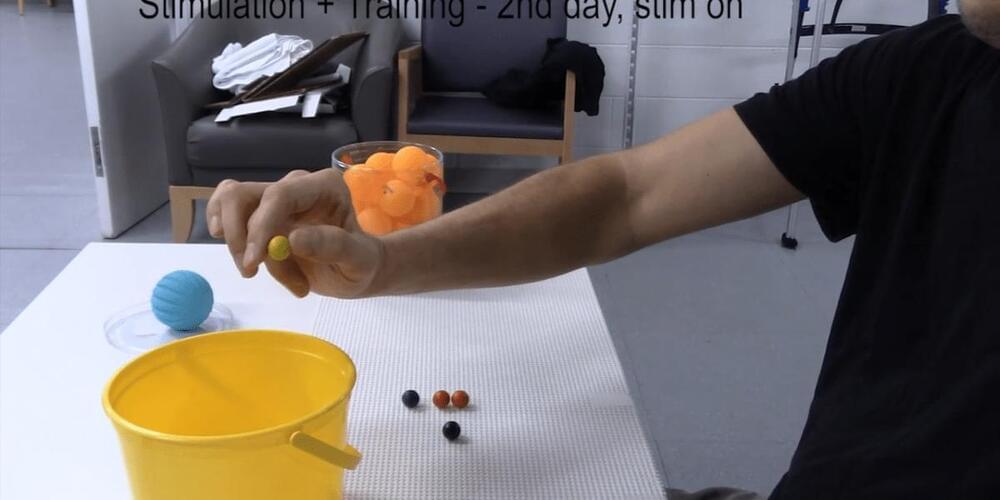
“Everyone thinks that [after] spinal injury, all you want to do is be able to walk again. But if you’re a tetraplegic or a quadriplegic, what matters most is working hands,” she said.
Reid received the device, called ARCex, as part of a 60-person clinical trial. She and the other participants completed two months of physical therapy, followed by two months of physical therapy combined with stimulation. The results, published today in Nature Medicine, show that the vast majority of participants benefited. By the end of the four-month trial, 72% experienced some improvement in both strength and function of their hands or arms when the stimulator was turned off. Ninety percent had improvement in at least one of those measures. And 87% reported an improvement in their quality of life.
This isn’t the first study to test whether noninvasive stimulation of the spine can help people who are paralyzed regain function in their upper body, but it’s important because a trial has never been done before in this number of rehabilitation centers or in this number of subjects, says Igor Lavrov, a neuroscientist at the Mayo Clinic in Minnesota, who was not involved in the study. He points out, however, that the therapy seems to work best in people who have some ability to move below the site of their injury.

22q11.2 deletion syndrome (22q) raises schizophrenia risk through skull malformations linked to the Tbx1 gene, affecting cerebellar development. This highlights how non-brain factors like bone defects can influence neurological disorders.
The chromosomal disorder 22q11.2 deletion syndrome (22q) has emerged as one of the strongest risk factors for schizophrenia. Scientists at St. Jude Children’s Research Hospital identified malformed regions of the cerebellum in both laboratory models and patients with 22q, attributing these malformations to improper skull formation.
Additionally, the researchers linked the skull malformation to the loss of a single gene: Tbx1. This research highlights that neurological disorders can arise from sources outside the nervous system, such as defects in skull development. The findings were published in Nature Communications.